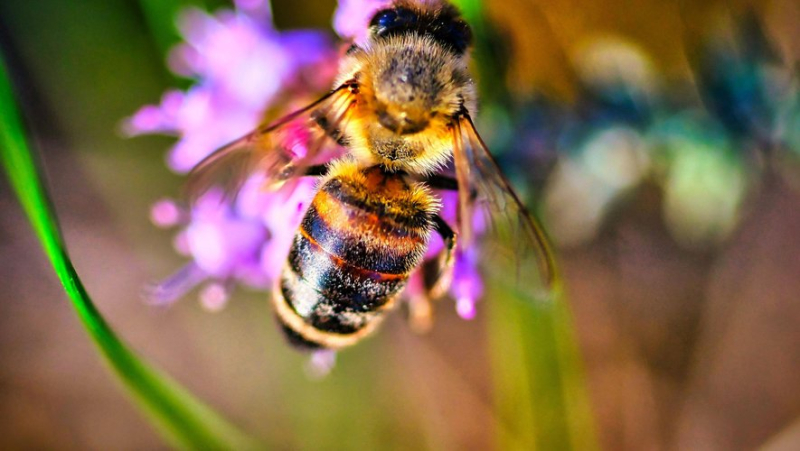Beekeepers in Gard are alarmed by the decline of the government and Europe on the use of pesticides

Les apiculteurs gardois inquiets pour l'avenir des abeilles après les dernières décisions sur l'utilisation des pesticides. MIKAËL ANISSET
Dans le Gard, les derniers reculs sur l'utilisation des pesticides inquiètent des apiculteurs dont l'activité est déjà fragilisée par les importations, le varroa et les frelons asiatiques.
After the government put the EcoPhyto pesticide reduction plan on hold following farmers' blockades, the withdrawal in February by the # 39;Europe of a text which made it possible to halve the use of these products by 2030, the Gard beekeepers, 1,500 listed including around thirty professionals, note a worrying decline .
Without wishing to oppose farmers who are against ecological standards, it is an entire profession and enthusiasts from Gard who are seeing a bad blow to bees whose numbers are decreasing regularly every year.
Disoriented bees
"We are moving towards a decline in environmental standards, which I regret. This is a bad blow for the beekeeping industry already affected by honey imports at 1.50 € per kilo. We find ourselves with stocks of French honey that we cannot sell at this price! underlines Gilbert Martin, president of the Syndicat d&# 39;beekeeping of Gard.
Member of the board of directors of this organization, specializing in recreational beekeeping, trainer Denis Cambon recalls the dangers of pesticides for bees and in particular neonicotinoids: "They disorient the bees who have a sort of GPS to locate their hive provided they do not move it one meter. If they can no longer geolocate their hives, this weakens the colonies and reduces honey reserves."
In Gard, each year, bee mortality remains stable, at around 30%. Which remains significant for those who have very few hives.
Varroa, Asian hornets weaken colonies
Gard beekeepers are already faced with other problems, starting with varroa, a mite which slips into hives, embeds itself in the cells and ;#39;proves to be a very dangerous parasite for bees. "Treatment is required at the end of August and around December 21"; explains Denis Cambon who also recalls the excess mortality in the event of the presence of the Asian hornet near the hives.
The pause in the use of pesticides therefore further weakens beekeeping. "This is yet another step backwards, a bad signal from the government which could lead to the decline of all pollinating insects! More resources should be given to research", indicates Denis Cambon.
The latter also reminds "pollination among Gard arborists. We work in good agreement with them. But the danger is not over for a bee which can fly within a radius of 3 km and is not safe from being exposed to pesticides in another field. (…) I would not like us to find ourselves like in the Sichuan valley, in China, where, for around ten years, it is men who have been pollinating the trees by hand fruit trees." The use of insecticides has in fact decimated the foragers.
A real environmental nonsense that the Gardois never want to see in their department.
Towards a demonstration in Toulouse
Several unions linked to beekeeping and the Peasant Confederation have risen. an inter-union organization to better support their demands. The Gard Beekeeping Union, affiliated with &agrav; Unaf (National Union of French Apiculture) is one of them. There is a demonstration project à Toulouse soon to discuss the latest positions of the government and Europe on pesticides, the problems of imports, labeling for know the origin of the honey. The weakened beekeeping sector has not said its last word.
I subscribe to read more




